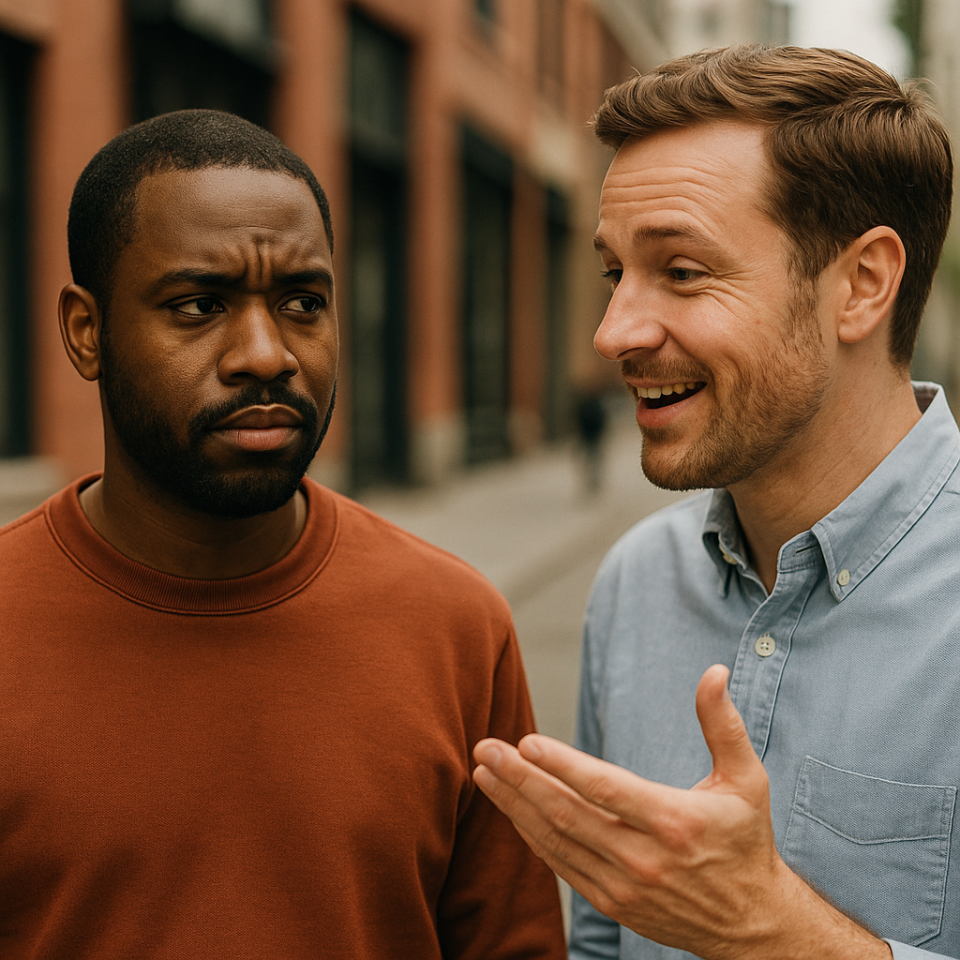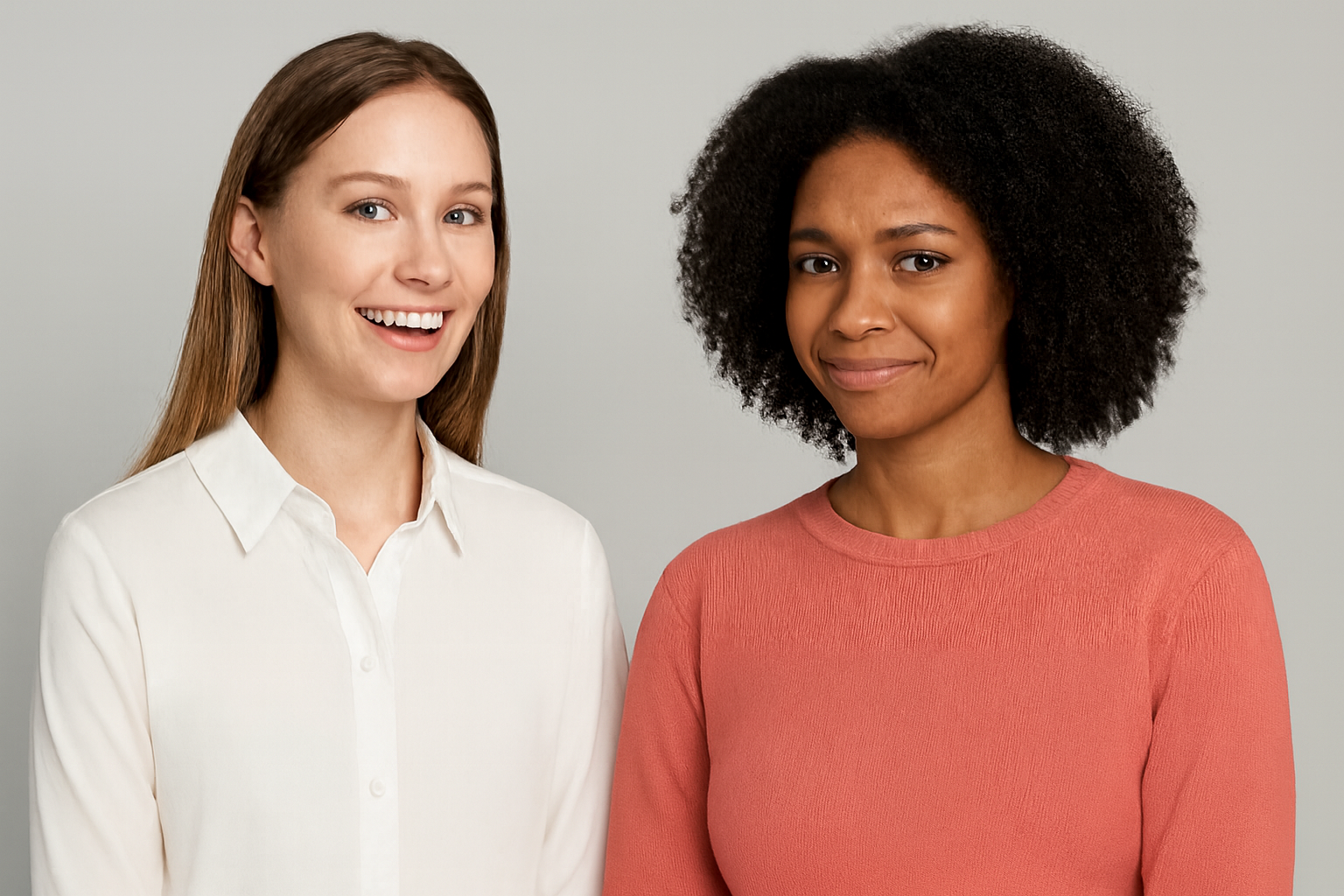The Missing Layer in the Science of Connection
Researchers say brief interactions with strangers boost mood and reduce loneliness. They argue that casual exchanges help build trust and community. That theory sounds right in a vacuum. But Black people do not live in a vacuum. We live in America.
The science ignores the burden that African Americans carry into these small encounters. Black people do not approach strangers with the same expectations as white people. We cannot. Microaggressions change the entire equation.
Where Black People Actually Feel Safe
In Black neighborhoods, these casual interactions feel real. A head nod. A quick joke. A “you good?” These gestures come from a shared cultural experience. They create trust because they are authentic. They come without judgment. And they build community without effort.
This is the “positivity resonance” researchers talk about. Black neighborhoods produce it naturally.
But outside those neighborhoods, the air changes. The tone shifts. The warmth feels uncertain.
Black people learn to read the fine print in every social moment.
The Problem With Politeness
Many white people approach strangers with polite smiles and cheerful greetings. On the surface, these gestures look positive. But Black people know that the surface rarely tells the whole story.
So the question becomes simple:
Is this warmth real, or is this performance?
Many Black people sense a gap between the words and the intention. The tone feels almost charitable. The smile feels slightly staged. The message feels like: “Have a great day… within the limits of the world I benefit from and you must work twice as hard to navigate.”
Black people feel this because we have lived the contradictions.

Why Some White People Act Polite While Holding Negative Views
Research shows three major reasons this happens.
1. Social Rules Demand Niceness
White people know open hostility has consequences. Politeness becomes a mask. It hides bias behind a friendly tone.
2. Superiority Disguised as Kindness
Some white people approach Black people with benevolent superiority. They think politeness proves their goodness. The subtext is paternalistic. Black people notice the hierarchy immediately.
3. Privilege Creates Blind Spots
Many white people underestimate the gaps created by privilege. Their “Have a great day” carries one meaning for them and another for the Black person receiving it.
These patterns are not imagined. They appear in study after study.

Are Black People Being Too Skeptical?
Some will argue that Black people misread these moments. But skepticism comes from experience. Microaggressions are constant. Ye they appear in stores, offices, airports, restaurants, hospitals, and schools. They accumulate. They teach caution.
When you have lived through:
- Unnecessary suspicion
- Comments about “articulating well”
- Surprise at competence
- Patronizing tones
- Following in stores
- Dismissive attitudes
…you learn to look past the smile.
That vigilance is not irrational. It is survival logic.
How This Interferes With the Research
The studies about stranger interactions assume a few things:
- People feel safe.
- Everyone starts from the same baseline.
- Warmth means the same thing to everyone.
- There is no racial power imbalance.
None of that applies to Black people.
So the same casual encounters that boost wellbeing for others can drain energy for us. You cannot relax into “positivity resonance” when you must watch for subtle disrespect.
The research rings true for some communities. It misses the mark for ours.
What Real Connection Requires
If we want ordinary social interactions to benefit everyone, we must address the racial dynamics beneath them. That means:
- Naming microaggressions clearly.
- Understanding how bias shapes tone.
- Teaching people to recognize subconscious prejudice.
- Creating public spaces where Black people feel respected.
- Building trust that does not depend on performance.
- Strengthening Black-led third spaces.
Real connection requires equity. Not just politeness.
The Path Forward
Black people should not have to decode every “Have a great day.” We should not have to wonder whether warmth is real or condescending. And we should not be forced to choose between loneliness and vigilance.
The science says strangers matter. It is right. But for Black people, trust matters more. Until society confronts the microaggressions and bias beneath everyday politeness, connection will never feel equal. And these passing encounters will continue to feel different for us than for anyone else.

